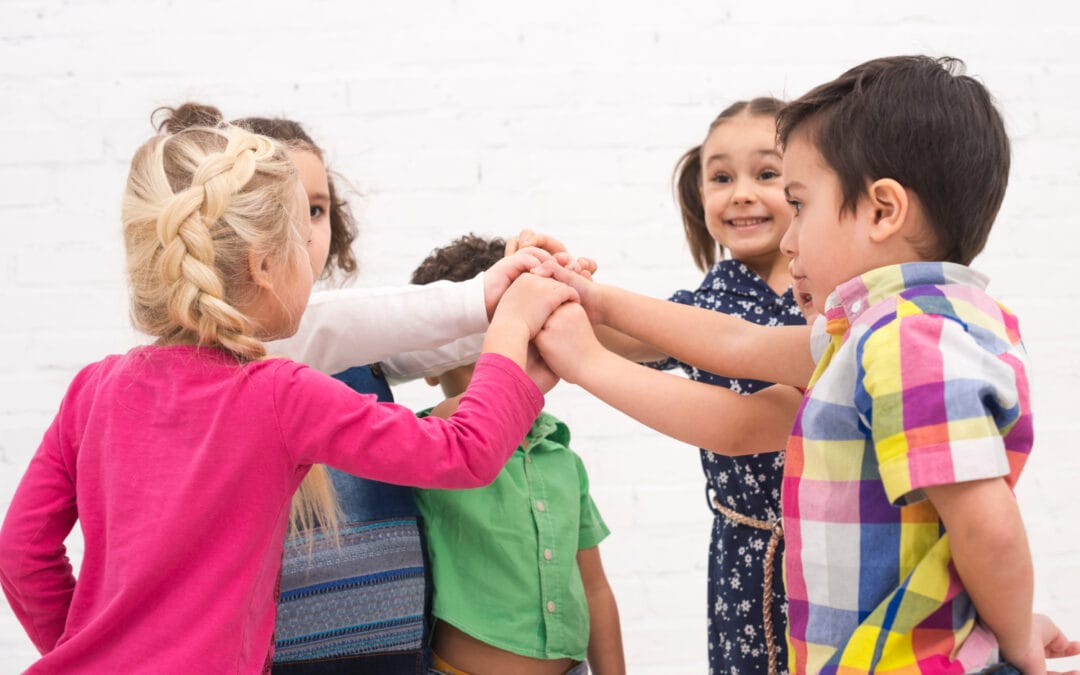Social skills are essential for children as they grow, helping them navigate friendships, communicate effectively, and understand social norms. Peer socialization groups provide a structured environment where children can practice these skills in a supportive and fun setting.
These groups are guided by experienced therapists who create scenarios and activities tailored to encourage interaction among children. By participating in these groups, children learn to cooperate, share, and resolve conflicts. These are all vital skills that will help them in school and other social settings.
Joining peer socialization groups also helps children build friendships in a structured way. It provides a safe space for them to make mistakes and learn from them without the fear of judgment. This kind of supportive interaction helps boost their confidence and fosters a sense of belonging. As they engage more with their peers, they become better equipped to handle various social situations both inside and outside the group sessions.
Understanding the Role of Peer Socialization Groups
Peer socialization groups help children learn critical social skills by interacting with others in a structured environment. These groups are particularly valuable for kids who may struggle with making friends or navigating social situations. By participating in these groups, children can practice communication, cooperation, and problem-solving skills in a safe and supportive setting.
In these groups, children engage in activities that require teamwork and communication. Speech-language pathologists (SLPs) and occupational therapists (OTs) often lead these sessions, guiding children through interactions that mimic real-life social scenarios. This approach helps children learn how to share, take turns, express their feelings, and understand others’ perspectives. These skills are crucial for forming lasting friendships and successful social interactions.
Peer socialization groups also provide opportunities for children to build self-esteem. Positive social experiences can boost a child’s confidence, helping them feel more comfortable and competent in social settings. As children become more adept at handling social situations, they are better equipped to navigate the complexities of friendships and group dynamics outside the therapy room.
Activities and Techniques for Building Friendships
Building friendships in peer socialization groups involves a variety of activities designed to develop social skills. Here are some common techniques and activities used in these groups:
1. Role-Playing: Children act out different social scenarios, such as introducing themselves to a new friend or resolving a disagreement. Role-playing helps them practice and internalize appropriate social behaviors.
2. Group Games: Games that require teamwork, such as building a tower with blocks or playing a cooperative board game, teach children how to work together and communicate effectively.
3. Discussion Circles: In discussion circles, children take turns speaking about a particular topic. This activity improves listening skills and helps children learn to wait their turn and respect others’ viewpoints.
4. Art and Craft Projects: Collaborative art projects encourage kids to share materials, discuss ideas, and cooperate to create something together. These activities foster creativity and teamwork.
5. Problem-Solving Tasks: Activities that require group problem-solving, like finding a way to transport an object from one side of the room to the other without using hands, help children develop critical thinking and cooperation skills.
By engaging in these activities, children practice vital social skills in a fun and interactive way. They learn how to make friends, understand social cues, and build positive relationships that can extend beyond the therapy setting.
Benefits of Peer Socialization for Children’s Development
Peer socialization groups offer numerous benefits that are crucial for children’s overall development. One of the primary advantages is enhanced communication skills. Interacting with peers in group settings helps children learn how to express themselves clearly and listen to others. This improved communication supports better relationships at home, in school, and in the community.
Another significant benefit is the development of empathy. In these groups, children learn to understand and respect different perspectives and emotions. This builds emotional intelligence, which is important for forming and maintaining healthy friendships. When children can empathize with others, they are more likely to resolve conflicts peacefully and build stronger social bonds.
Peer socialization also boosts self-confidence. Positive interactions and successful social experiences make children feel more competent in social situations. This confidence can extend to other areas of their lives, such as academic performance and participation in extracurricular activities. Children who feel good about their social skills are more likely to engage in group activities and take on leadership roles.
Tips for Parents to Encourage Socialization at Home
Parents can play a critical role in supporting their child’s social development by encouraging socialization at home. Here are some practical tips to help foster these skills:
1. Arrange Playdates: Set up regular playdates with other children. This gives your child opportunities to practice social skills in a relaxed environment. Rotate the playdates among different friends to expose your child to various personalities and interactions.
2. Model Social Behavior: Show your child how to interact politely and respectfully with others. Use everyday situations to demonstrate good manners, active listening, and conflict resolution. Your behavior serves as a powerful example for your child to follow.
3. Encourage Group Activities: Enroll your child in group activities or classes, such as sports teams, art classes, or clubs. These settings provide structured environments for practicing social skills while engaging in enjoyable activities.
4. Role-Play Social Scenarios: Practice different social situations at home. Role-play scenarios such as introducing themselves, asking to join a game, or dealing with disagreements. This practice helps your child feel more prepared and confident in real-life social interactions.
5. Praise Social Efforts: Acknowledge and praise your child’s efforts to be social, even if the interactions are not perfect. Positive reinforcement encourages them to keep trying and improving their social skills.
By incorporating these tips into your daily routine, you can help your child develop the social skills they need to thrive in various social settings.
Conclusion
Peer socialization groups and guided activities play a crucial role in children’s development, helping them build essential social skills, empathy, and self-confidence. Through these structured interactions, children learn how to communicate effectively, work as a team, and understand others’ feelings. These skills are invaluable for creating strong, lasting relationships and succeeding both in and out of school.
At Watch Me Shine, we are committed to fostering these critical social skills through our comprehensive kid’s therapy and peer socialization programs. If you’re interested in learning more about how our services can benefit your child, contact us today. Together, we can help your child build meaningful friendships and thrive socially.

